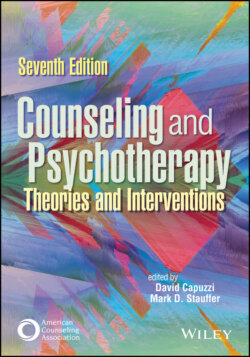Читать книгу Counseling and Psychotherapy - Группа авторов - Страница 33
Sidebar 1.4 Personal Characteristics of the Counselor Candidate
ОглавлениеIn conjunction with each of the core conditions described in this chapter (empathic understanding, respect and positive regard, genuineness and congruence, concreteness, warmth, and immediacy), there is a list of personal characteristics the counselor should have. Do you think you are a person with such attributes? If not, do you view this as a dilemma, given your choice to become a counselor?
Egan (2013) identified both primary and advanced levels of empathic understanding. At the primary level, it involves the ability to understand, identify, and communicate feelings and meanings that are at the surface level of the client’s disclosures. At the advanced level, it involves the ability to understand, identify, and communicate feelings and meanings that are buried, hidden, or beyond the immediate reach of a client. Such feelings and meanings are more often covert than overt client expressions. Additionally, clients who are a part of marginalized groups may express feelings of being misunderstood. It is important for counselors to understand that they do not have to share similar experiences to practice this skill effectively. Counselors who remain committed to understanding their client’s experiences from the client’s vantage point can draw from aspects of cultural competence and cultural humility to increase their empathic understanding. For example, because trans and nonbinary clients often face lack of empathy in heteronormative-reinforced familial and social institutions, it is so important for the counselor to be empathic and affirming; however, there may be initial mistrust or hostility when a cisgendered counselor’s empathic attempts feel more like an attempt to communicate “I get it” as if part of the ingroup (dickey & Singh, 2020).
Personal characteristics or behaviors that enhance a counselor’s or therapist’s ability to provide empathic understanding include, but are not limited to, the following:
The knowledge and awareness of one’s own values, attitudes, and beliefs and the emotional and behavioral impact they have on oneself and others
The knowledge and awareness of one’s own feelings and emotional response patterns and how they manifest themselves in interactive patterns
The knowledge and awareness of one’s own lived experiences and one’s personal reactions to those experiences
The capacity and willingness to communicate these personal reactions to one’s clients
